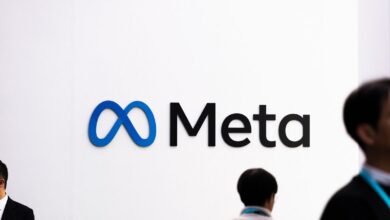Meta AI Wants Access to Your Unshared Camera Roll Photos

▼ Summary
– Facebook is requesting access to users’ camera rolls to generate AI-edited photo suggestions, including unuploaded images, via a pop-up during Story creation.
– Users must agree to Meta’s AI Terms of Service, allowing facial and image analysis for features like collages and AI restylings, with media uploaded to Meta’s cloud.
– Meta claims the suggestions are private and not used for ad targeting, but the AI terms permit retaining personal data for personalized outputs and human reviews.
– The feature, found in Settings under “Camera roll sharing suggestions,” has been active since at least early 2025, with limited user backlash so far.
– Meta confirmed the feature is a U.S. and Canada test, opt-in only, and media is used for improving suggestions but not AI models during this trial.
Meta is testing a new AI feature that requests access to users’ entire camera rolls, including photos never shared on Facebook, to generate AI-enhanced content like collages, stylized images, and themed recaps. The prompt appears when creating Stories, asking permission for “cloud processing” to analyze unuploaded media based on timestamps, locations, and detected objects.
While the pop-up claims suggestions remain private and unused for ads, agreeing activates Meta’s broad AI Terms of Service, permitting facial recognition, image modification, and content generation. The fine print reveals Meta retains rights to “analyze, retain, and use” submitted data, potentially including personal details, to refine AI outputs. Human reviewers may also access interactions with the tool.
Users report encountering the feature unexpectedly, with some discovering old photos automatically transformed into anime-style art or other AI-generated variations. Though Meta positions it as opt-in, the toggle for cloud processing hides deep in Settings under Camera Roll Sharing Suggestions. Disabling it requires manually navigating through Preferences.
Critics argue this expands Meta’s AI training beyond public posts, tapping into private galleries without explicit clarity on long-term data usage. A spokesperson clarified the test is limited to the U.S. and Canada, emphasizing media isn’t used to train broader AI models “in this phase.” However, the terms leave room for interpretation, lacking archived versions for comparison since their June 2024 enforcement.
For those uneasy about AI accessing personal galleries, the solution isn’t intuitive. The setting must be disabled separately from general photo permissions, raising questions about transparency. As tech firms race to integrate AI, features like these highlight the trade-offs between convenience and control over private content.
Meta’s response underscores its experimental approach, but the implications of ongoing cloud uploads, paired with vague terms, leave users weighing innovation against unintended data exposure.
(Source: TechCrunch)





